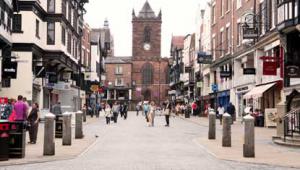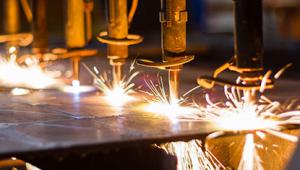This was slightly down on gross domestic product growth of 0.6% reported in the preceding three-month period (October-December 2015).
Growth was driven by improvements in services, with output increasing by 0.6% in this sector. However, output in the other three main industrial groupings (manufacturing, construction and agriculture) were all down on the previous quarter.
Compared to the first quarter of 2015, GDP was 2.1% higher in the first three months of this year, and compared to the pre-downturn peak of Quarter 1 2008, the economy has expanded by 7.3%.
Chancellor George Osborne welcomed that the economy is continuing to grow but highlighted today’s warning from the OECD that a decision to leave the European Union would pose a significant economic risk.
John Hawksworth, chief economist at PwC, said the economy has hit a “soft patch”, reflecting heightened uncertainties about the health of the global economy.
He said the coming EU referendum might also be a factor. “Uncertainty about the EU referendum outcome may also have had an impact from late February onwards as it became clear there would be an early vote in June. This may have led to some delay in major investment decisions, as indicated by weak construction output in the first quarter,” he said.
Hawksworth concluded that he was “cautiously optimistic” that the economy would rebound in the second half of this year.
A Schroders, senior European economist Azad Zangana also said business may be nervous in the run up to the Brexit vote and putting investment and hiring plans on hold.
“It appears that the economy has hit a speed bump. Growth is likely to remain sluggish until the result of the referendum is known,” he said.
“If the UK votes to remain in the EU then growth is likely to accelerate significantly in the second half of the year. If, however, the UK votes to leave, then growth is likely to slow further on the back of the added uncertainty for businesses.”



















